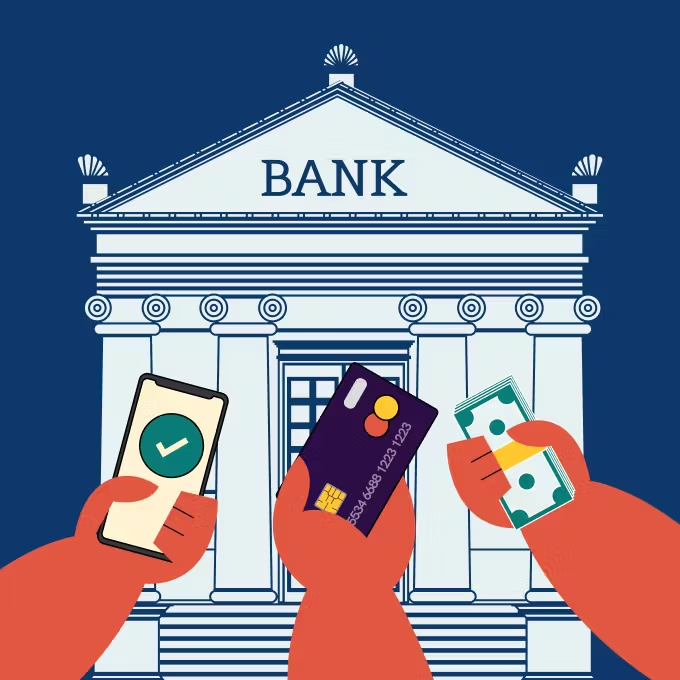
Bank charges are a common part of managing a bank account, but they can often be confusing and costly if not properly understood. In this article, we will provide a comprehensive breakdown of the various types of bank charges, including fees and penalties, and offer practical tips on how to avoid them. By the end of this article, you will have a clearer understanding of bank charges and how to minimize their impact on your finances.
Understanding Bank Fees
Bank fees are charges that financial institutions impose on customers for various services. These fees can quickly add up if you’re not careful. Here are some common types of bank fees:
Monthly Maintenance Fees
Monthly maintenance fees are charges that banks levy for maintaining your account. These fees can range from a few dollars to over $15 per month, depending on the type of account and the bank. To avoid these fees, consider the following strategies:
- Maintain Minimum Balance: Many banks waive the monthly maintenance fee if you maintain a minimum balance in your account.
- Choose No-Fee Accounts: Some banks offer accounts with no monthly maintenance fees. Look for these options when selecting a bank.
- Direct Deposits: Setting up direct deposits for your paycheck can also help you avoid these fees.
ATM Fees
Using an ATM outside of your bank’s network can result in hefty fees. These fees can include charges from both your bank and the ATM owner. To avoid ATM fees:
- Use Your Bank’s ATMs: Stick to ATMs within your bank’s network.
- Get Cash Back: When making purchases, opt for cash back at grocery stores or other retailers to avoid ATM fees.
- Plan Withdrawals: Withdraw larger amounts less frequently to minimize the need for multiple ATM visits.
Penalties and Overdraft Fees
Penalties and overdraft fees are charges that banks impose when you exceed your account balance or violate other account terms. Understanding these fees can help you avoid unnecessary costs.
Overdraft Fees
Overdraft fees occur when you spend more money than you have in your account, causing a negative balance. Banks often charge a fee for each transaction that exceeds your balance. To avoid overdraft fees, keep an eye on your spending and be aware of recurring charges, such as those from mmbill, which can quickly add up and lead to unexpected overdrafts. Read more about mmbill to understand its impact on your finances.
- Set Up Alerts: Many banks offer balance alerts via text or email. Set these up to monitor your account balance.
- Link Accounts: Link your checking account to a savings account to cover overdrafts automatically.
- Opt-Out: Consider opting out of overdraft protection. While this means transactions will be declined if you don’t have enough funds, it can prevent overdraft fees.
Insufficient Funds Fees
Insufficient funds fees, also known as non-sufficient funds (NSF) fees, are charged when a check or automatic payment bounces due to lack of funds. To avoid NSF fees:
- Monitor Your Balance: Regularly check your account balance to ensure you have enough funds to cover payments.
- Use Overdraft Protection: If available, use overdraft protection to cover payments and avoid NSF fees.
Hidden Fees to Watch Out For
In addition to the common fees and penalties, there are several hidden fees that you should be aware of.
Paper Statement Fees
Many banks charge a fee for paper statements. To avoid this fee, opt for electronic statements, which are often free.
Account Closing Fees
Some banks charge a fee if you close your account within a certain period after opening it. Be sure to check your bank’s policy before closing an account to avoid this fee.
Foreign Transaction Fees
If you travel internationally, be aware that some banks charge a fee for foreign transactions. To avoid these fees:
- Use a No-Fee Card: Choose a credit or debit card that doesn’t charge foreign transaction fees.
- Notify Your Bank: Inform your bank of your travel plans to avoid having your card blocked.
Tips for Reducing Bank Charges
Reducing bank charges requires a proactive approach to managing your account. Here are some tips to help you minimize fees:
- Regularly Review Account Statements: Regularly review your bank statements to identify any fees and take steps to avoid them in the future.
- Negotiate with Your Bank: If you notice a fee that you believe is unfair, contact your bank and request a waiver. Banks often accommodate customers who have a good banking history.
- Choose the Right Account: Select an account that aligns with your banking habits and financial goals. Look for accounts with low or no fees and features that meet your needs.
Conclusion
Bank charges, including fees and penalties, can significantly impact your finances if not managed properly. By understanding the various types of bank charges and implementing strategies to avoid them, you can keep more of your money in your pocket. Remember to review your account terms, monitor your balance, and choose the right account to minimize bank charges. Being proactive and informed is key to reducing and avoiding unnecessary bank fees and penalties.
